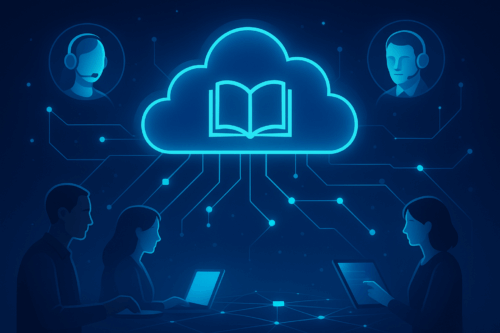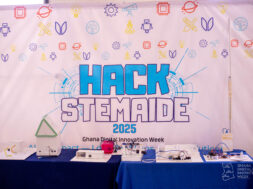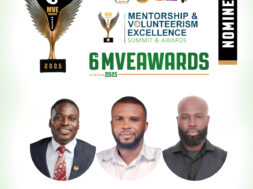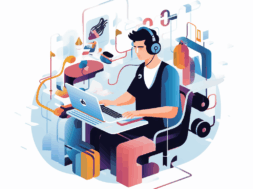Knowledge-as-a-Service (KaaS) Platforms: The Future of On-Demand Learning

Introduction: Knowledge-as-a-Service and the Future of Learning
In the era of digital transformation, information has become one of the world’s most valuable assets. As industries evolve and skill demands shift rapidly, Knowledge-as-a-Service (KaaS) is emerging as a new model for delivering expertise on demand.
Unlike traditional education or e-learning systems, KaaS platforms combine AI, cloud technology, and data analytics to make learning adaptive, personalized, and continuous. In 2025 and beyond, they’re redefining how individuals and organizations learn, train, and grow in the knowledge economy.
What Is Knowledge-as-a-Service (KaaS)?
Knowledge-as-a-Service (KaaS) is a cloud-based model that delivers structured learning and expertise through scalable digital platforms. Similar to how Software-as-a-Service (SaaS) provides access to tools, KaaS provides access to curated knowledge — anytime, anywhere.
KaaS platforms integrate AI-driven recommendation systems, real-time analytics, and interactive tools to deliver insights tailored to a learner’s goals and performance. This approach moves beyond static online courses, offering dynamic, data-informed education that grows with the user.
For businesses, KaaS enables on-demand corporate training, team skill assessments, and upskilling at scale. For individuals, it offers flexible, subscription-based access to the world’s best expertise.
From E-Learning to AI-Powered Knowledge Delivery
The evolution from e-learning to KaaS represents a major leap in personalization. Early online courses were mostly one-size-fits-all; learners had to adapt to the content. Today, with the help of AI learning engines, the content adapts to the learner.
- ChatGPT, for example, functions as an intelligent tutor, capable of answering questions, generating examples, and testing comprehension.
- Khan Academy’s AI tutor guides students step-by-step through problem-solving in math and science.
- Notion AI and other intelligent platforms deliver contextual learning by linking knowledge to workflows and productivity tools.
This shift transforms education into a living system — responsive, predictive, and deeply personalized.
Monetizing Expertise Through Subscription Learning
One of the most exciting trends in KaaS is the ability for professionals to monetize their expertise. Instead of selling one-time courses, experts can create subscription-based learning models, offering continuous updates, live sessions, and premium communities.
Platforms like Udemy, MasterClass, and LinkedIn Learning have already proven the success of this approach. They allow educators, thought leaders, and industry professionals to earn passive income while delivering long-term value to learners.
With AI tools simplifying content creation, course delivery, and learner tracking, building a Knowledge-as-a-Service business has never been easier or more scalable.
Micro-Learning for Busy Professionals
In today’s fast-paced work environment, microlearning has become a cornerstone of the KaaS model. Instead of lengthy lessons, KaaS platforms break knowledge into bite-sized modules that can be completed in minutes — perfect for professionals seeking quick, practical insights.
These micro-courses are often supported by gamification, progress tracking, and AI reminders to maintain engagement. This approach aligns with how modern professionals learn — in short bursts, across multiple devices, and in context with their work.
It’s not just convenient — it’s more effective. Research shows that microlearning improves retention by up to 80%, making it ideal for continuous professional development and reskilling in fast-changing industries.
Building a KaaS Startup
Technology Stack
Launching a KaaS startup requires a strong cloud-based infrastructure. Core components include:
- AI-powered personalization engines for adaptive content delivery.
- APIs and integrations for payment systems, learning management, and analytics.
- Cloud storage for secure and scalable content hosting.
- Data dashboards to track learner engagement and performance.
With platforms like AWS, Google Cloud, and open-source LMS frameworks, startups can build and deploy scalable KaaS solutions faster than ever.
Monetization Models
Successful KaaS platforms often combine multiple revenue streams:
- Subscription tiers for individuals and teams.
- Freemium access with paid premium content.
- Enterprise licensing for corporate clients.
- Certification and mentorship add-ons for career advancement.
The best models balance accessibility with exclusivity, encouraging long-term engagement and loyalty.
AI Tutors and Chatbots in Knowledge Delivery
AI tutors and chatbots have become essential in scaling personalized education. They offer learners instant support, progress feedback, and adaptive learning paths.
For example, AI chatbots embedded in KaaS platforms can:
- Answer learner questions in real time.
- Recommend relevant resources or next modules.
- Evaluate comprehension through quizzes or prompts.
Corporate versions of these bots even deliver AI-led training sessions, helping employees upskill without relying on constant instructor presence. The result is a 24/7 learning companion that personalizes and democratizes knowledge access.
Corporate Training Reinvented
For organizations, KaaS offers a cost-effective solution to the ongoing challenge of workforce training. Instead of traditional seminars or static e-learning modules, companies now use KaaS platforms to provide continuous learning ecosystems.
Employees can learn at their own pace, track certifications, and engage with AI mentors. Businesses benefit from real-time analytics, measuring skill progress, engagement rates, and training ROI.
By integrating KaaS into HR systems, organizations ensure that learning never stops, supporting innovation and agility in a rapidly evolving digital economy.
Case Studies: Leading Knowledge-as-a-Service Platforms
Several platforms already demonstrate the success of KaaS models:
- Coursera – Partners with universities to deliver affordable global education.
- Udemy – Democratizes teaching, allowing anyone to monetize expertise.
- MasterClass – Premium subscription learning with world-renowned experts.
- LinkedIn Learning – Offers corporate learning tied to professional development goals.
Emerging AI-driven KaaS startups are now building on these foundations, combining automation, real-time analytics, and personalization to redefine the digital education ecosystem.
The Future of KaaS and the Knowledge Economy
The future of Knowledge-as-a-Service is deeply intertwined with AI, blockchain, and lifelong learning ecosystems. Blockchain will secure learning credentials, while AI will continue to personalize and predict knowledge needs.
The global shift toward a skill-based economy means that continuous learning will soon become a competitive necessity. KaaS platforms will not just deliver content — they will act as intelligent knowledge partners, guiding professionals throughout their careers.
As the line between education and work blurs, KaaS will bridge the gap, enabling people and businesses to learn, adapt, and innovate faster than ever before.
Accessing Knowledge On Demand
The age of Knowledge-as-a-Service marks a profound transformation in how we access, share, and monetize information. From AI-powered tutors to subscription learning models, KaaS empowers anyone to turn expertise into value — and anyone, anywhere, to learn on demand.
In this new era, knowledge is no longer stored in books or locked in institutions. It lives in the cloud — accessible, personalized, and always evolving. For entrepreneurs, educators, and learners, KaaS represents the future of education, business, and innovation itself.
Opportunities for Entrepreneurs and Innovators
The Knowledge-as-a-Service (KaaS) model is opening exciting frontiers for entrepreneurs, particularly in emerging economies like Africa and Asia. As access to digital infrastructure improves, there’s growing potential to build localized KaaS platforms that cater to specific industries, languages, or cultural contexts.
Niche Opportunities Include:
- Industry-specific KaaS platforms — delivering targeted knowledge for fields like agriculture, fintech, healthcare, or renewable energy.
- AI-powered mentorship ecosystems — connecting learners with professionals through intelligent matching systems.
- Community-driven microlearning hubs — combining social learning and gamified challenges to build engagement.
- KaaS for rural education and reskilling — offering offline-accessible or low-bandwidth learning models.
Investors are already noticing the value of KaaS in emerging markets, especially where digital education gaps remain wide. The scalability, subscription potential, and AI-driven insights make it a high-growth sector for impact investors and venture capitalists alike.
Challenges and Ethical Considerations
While KaaS platforms promise inclusivity and personalization, they also face critical challenges.
1. Data Privacy and Security
With vast amounts of learner data collected to personalize experiences, data privacy becomes a top concern. Startups must adopt transparent data use policies and compliance with global standards like GDPR to build trust and credibility.
2. Quality Control in Knowledge Delivery
The democratization of expertise means anyone can teach — but not everyone delivers verified, high-quality knowledge. KaaS platforms must develop AI-based quality checks, peer reviews, or credential verification systems to ensure educational integrity.
3. Algorithmic Bias and Accessibility
AI algorithms can inadvertently reinforce bias in content recommendations. Developers must design ethical AI systems that promote inclusion, diversity, and fairness in learning access.
4. Balancing Automation and Human Interaction
While automation makes learning scalable, human connection remains key to motivation and mentorship. The most successful KaaS platforms will combine AI efficiency with human empathy — blending algorithms with authentic community engagement.
Emerging Trends in the KaaS Landscape
The KaaS ecosystem continues to evolve alongside major tech and social trends shaping the future of education and knowledge delivery:
1. Integration with the Metaverse and Virtual Reality (VR)
Immersive experiences are transforming online learning. Future KaaS platforms may host 3D learning environments, virtual classrooms, or realistic skill simulations — making education experiential and engaging.
2. Blockchain Credentials and Smart Certificates
As KaaS platforms expand globally, blockchain ensures secure verification of credentials. Learners can own and share digital certificates that can’t be forged, verified instantly by employers worldwide.
3. Voice and Conversational Learning
Voice assistants and conversational AI — such as ChatGPT-style tutors — will dominate mobile-first KaaS delivery. Learners will access information by asking questions, not scrolling through lessons.
4. Corporate Integration with HR and Workflow Systems
Incorporating KaaS tools into enterprise HR systems (like Workday or BambooHR) allows employees to learn directly within their workflow, tracking learning progress as part of their career growth path.
5. Community-Driven Learning Ecosystems
Future KaaS platforms won’t just deliver lessons — they’ll host collaborative communities where learners, mentors, and creators share insights, co-create content, and build peer-to-peer knowledge economies.
Case Study Snapshot: MasterClass vs. LinkedIn Learning
To illustrate the power of KaaS models, consider these two leaders:
MasterClass:
- Uses celebrity instructors to make premium knowledge accessible.
- Operates on a subscription model offering unlimited access to courses.
- Focuses on inspiration and storytelling as learning tools.
LinkedIn Learning:
- Integrates skill development with career progression.
- Offers AI-recommended courses based on user profiles and job data.
- Helps companies train and certify employees efficiently.
Both exemplify how KaaS platforms adapt to different user motivations — one driven by inspiration, the other by professional development.
Africa’s Potential in the Knowledge-as-a-Service Revolution
Africa stands at a unique advantage in this new era. With a youthful population, rapid mobile adoption, and growing AI innovation ecosystems, the continent can become a leader in localized knowledge delivery.
Startups in Ghana, Nigeria, Kenya, and South Africa are already developing AI-powered tutoring systems, vocational learning apps, and language-based KaaS platforms that bridge educational gaps.
For instance:
- uLesson (Nigeria) delivers accessible video learning tailored to African curricula.
- M-Shule (Kenya) uses SMS-based microlearning for rural education.
- Baobab Entrepreneur (Ghana) promotes entrepreneurial education and skill-building through digital storytelling and AI-powered resources.
These models show how Knowledge-as-a-Service can drive inclusive growth — turning education into empowerment.
Empowering the Next Generation Through KaaS
The Knowledge-as-a-Service revolution is more than a technological shift — it’s a cultural transformation. By merging AI, cloud computing, and human expertise, KaaS platforms are turning information into an interactive, continuous, and monetizable experience.
For learners, it’s about accessing personalized knowledge anytime, anywhere.
For professionals, it’s a chance to turn skills into scalable digital assets.
And for societies, it’s a path toward a smarter, more inclusive global economy.
In 2025 and beyond, Knowledge-as-a-Service will be at the core of how we learn, grow, and innovate. The future belongs to those who not only seek knowledge — but know how to deliver it intelligently.
Investment and Market Outlook for KaaS in 2025 and Beyond
The global education technology (EdTech) sector is rapidly evolving, and Knowledge-as-a-Service (KaaS) is emerging as one of its most profitable and sustainable models. According to recent forecasts, the KaaS market is expected to grow at a compound annual growth rate (CAGR) of over 25% between 2025 and 2030 — driven by corporate reskilling needs, AI integration, and the rising demand for flexible learning models.
1. Why Investors Are Turning to KaaS
Investors view KaaS as the next frontier of SaaS innovation. Instead of selling software tools, KaaS platforms sell knowledge subscriptions, offering predictable revenue and long-term engagement. This makes them attractive to venture capitalists and impact investors who seek scalable, recurring-revenue business models.
Furthermore, as industries face skill shortages in AI, data analytics, and cybersecurity, corporate learning budgets are shifting toward on-demand platforms that deliver measurable ROI. This is precisely where KaaS thrives — providing real-time, skill-focused education rather than traditional degree programs.
2. Key Market Drivers
- AI-driven personalization: Learners expect content tailored to their needs.
- Remote and hybrid work: Companies prioritize flexible, digital-first training.
- Lifelong learning culture: Professionals embrace continuous self-improvement.
- 5G and mobile adoption: Learning becomes faster, immersive, and accessible anywhere.
These trends collectively make KaaS not just an EdTech innovation — but a strategic pillar for the future of global workforce development.
Building a Competitive Edge: Strategies for Future KaaS Leaders
For entrepreneurs entering the KaaS space, competition is rising — but so are opportunities. Success will depend on innovation, adaptability, and trust. Here are the top strategies to build and sustain an edge in the industry:
1. Integrate Deep Personalization
Use machine learning algorithms to track learner behavior, adjust lesson difficulty, and recommend content dynamically. The more personalized the learning experience, the higher the engagement and retention.
2. Embrace Community and Collaboration
KaaS is not just about consuming knowledge — it’s about sharing it collectively. Platforms that foster peer-to-peer mentorship, discussions, and networking will outperform one-way education models.
3. Focus on Measurable Outcomes
Offer learners clear progress metrics — certificates, badges, or skill analytics. This transparency increases motivation and helps employers recognize achievements easily.
4. Prioritize UX and Accessibility
Design simple, mobile-friendly interfaces that support multilingual learners and low-bandwidth users, especially in emerging markets like Africa and Southeast Asia.
5. Build Ethical AI and Transparent Data Systems
Trust is crucial. Ensure that algorithms and data collection methods respect user privacy, prevent bias, and follow ethical AI guidelines.
Government and Policy Support for Knowledge-as-a-Service
Governments across Africa, Asia, and Europe are beginning to recognize KaaS platforms as key tools for national development. Public-private partnerships in education are on the rise, aiming to close digital literacy gaps and promote innovation.
Examples Include:
- Ghana’s Digital Skills for All Initiative — encouraging tech startups to provide localized KaaS solutions.
- Kenya’s Ajira Digital Program — linking learning platforms to remote work opportunities.
- European Union’s Digital Education Action Plan — funding AI-driven KaaS startups focused on lifelong learning.
Such collaborations create powerful ecosystems where policy, innovation, and technology work together to democratize knowledge.
Future Vision: The Global Knowledge Cloud
Imagine a world where knowledge isn’t stored in books or institutions — but flows freely through cloud networks, accessible to anyone in real time. That’s the vision of the Global Knowledge Cloud, a concept driving the KaaS revolution.
In this model, every learner, educator, and organization contributes to a shared knowledge ecosystem powered by:
- Blockchain-secured credentials for verified expertise.
- AI-driven mentors for personalized guidance.
- Data interoperability allowing learning records to follow individuals across careers.
The result? A borderless knowledge economy, where learning is lifelong, adaptive, and universally available.
The Role of Africa and Emerging Economies in Shaping KaaS
Emerging economies like Ghana, Kenya, Nigeria, and Rwanda are uniquely positioned to leapfrog traditional education barriers by embracing mobile-first, AI-enhanced KaaS platforms.
With over 60% of Africa’s population under 25, there’s immense potential for youth-driven innovation in the knowledge sector. Startups combining education, technology, and community learning are set to redefine how millions access skills, careers, and entrepreneurship support.
Furthermore, local governments and incubators — such as GIZ Innovation Fund, MEST Africa, and Baobab Entrepreneur Network — are already investing in KaaS-style platforms that connect local experts with global learners.
This fusion of local expertise and global technology may very well position Africa as a pioneer in decentralized, inclusive knowledge delivery.
The Road Ahead: Redefining Education, Work, and Innovation
The Knowledge-as-a-Service (KaaS) revolution isn’t just transforming education — it’s reshaping the very fabric of how societies learn, innovate, and progress.
We’re entering an age where learning is not confined to classrooms or academic calendars. Instead, knowledge flows through digital ecosystems, powered by AI tutors, data-driven insights, and real-time collaboration. This shift is blurring the lines between education and work — between learning and doing.
In the coming years, professionals will rely on KaaS platforms to stay competitive, while organizations will depend on them to cultivate adaptable, future-ready teams. Entrepreneurs and experts, in turn, will use these platforms to monetize their experience and reach global audiences.
As the digital world becomes increasingly complex, KaaS will serve as the bridge between human potential and technological innovation — giving people the tools to learn faster, think smarter, and achieve more.
KaaS and the Human Element: Balancing Technology with Purpose
While technology powers KaaS, its true success depends on maintaining a human-centered approach. At its core, learning is about connection, growth, and curiosity — values that no algorithm can replace.
The platforms that will define the future are those that combine AI efficiency with empathy, data with creativity, and automation with authenticity. They will not only transfer information but also inspire transformation.
In other words, the future of KaaS is not just about smarter systems — it’s about smarter, more fulfilled humans.
KaaS and the Sustainable Knowledge Economy
Beyond education, KaaS also contributes to building a sustainable global economy. By reducing barriers to learning and upskilling, these platforms help people from all backgrounds participate in the digital economy.
- Entrepreneurs in developing countries can access cutting-edge business knowledge.
- Students in remote regions can learn from global experts.
- Companies can train employees efficiently, reducing time, travel, and energy costs.
This democratization of learning directly supports the United Nations Sustainable Development Goals (SDGs) — particularly in quality education (Goal 4) and decent work and economic growth (Goal 8).
Thus, KaaS isn’t just a business model; it’s a blueprint for a more inclusive, resilient, and equitable future.
The Final Thought: Knowledge Without Borders
The world is standing at the intersection of intelligence and accessibility. In this new digital era, knowledge is no longer a privilege — it’s a right.
Through the Knowledge-as-a-Service model, we are witnessing the dawn of a borderless learning ecosystem, where anyone with curiosity and connectivity can learn, earn, and lead.
From AI-powered tutors to personalized cloud learning platforms, from microlearning startups to global education giants — the KaaS revolution is proving that the future of learning is not about consuming content, but about unlocking human potential.
As we move deeper into 2025 and beyond, one truth stands clear:
Those who master how to access and share knowledge will be the architects of the future.
Conclusion: Redefining How the World Learns
The shift toward Knowledge-as-a-Service (KaaS) marks a new era of learning — one where education is on-demand, intelligent, and democratized.
In the same way SaaS revolutionized business software, KaaS is now revolutionizing how people acquire, apply, and monetize knowledge. Through the power of AI personalization, cloud infrastructure, and human creativity, learning has become a living, evolving service — accessible to anyone, anywhere.
The future belongs to those who not only consume knowledge, but also share it strategically. As KaaS continues to shape global education and the knowledge economy, one thing is certain:
Knowledge is no longer just power — it’s a service, a product, and a global movement.















